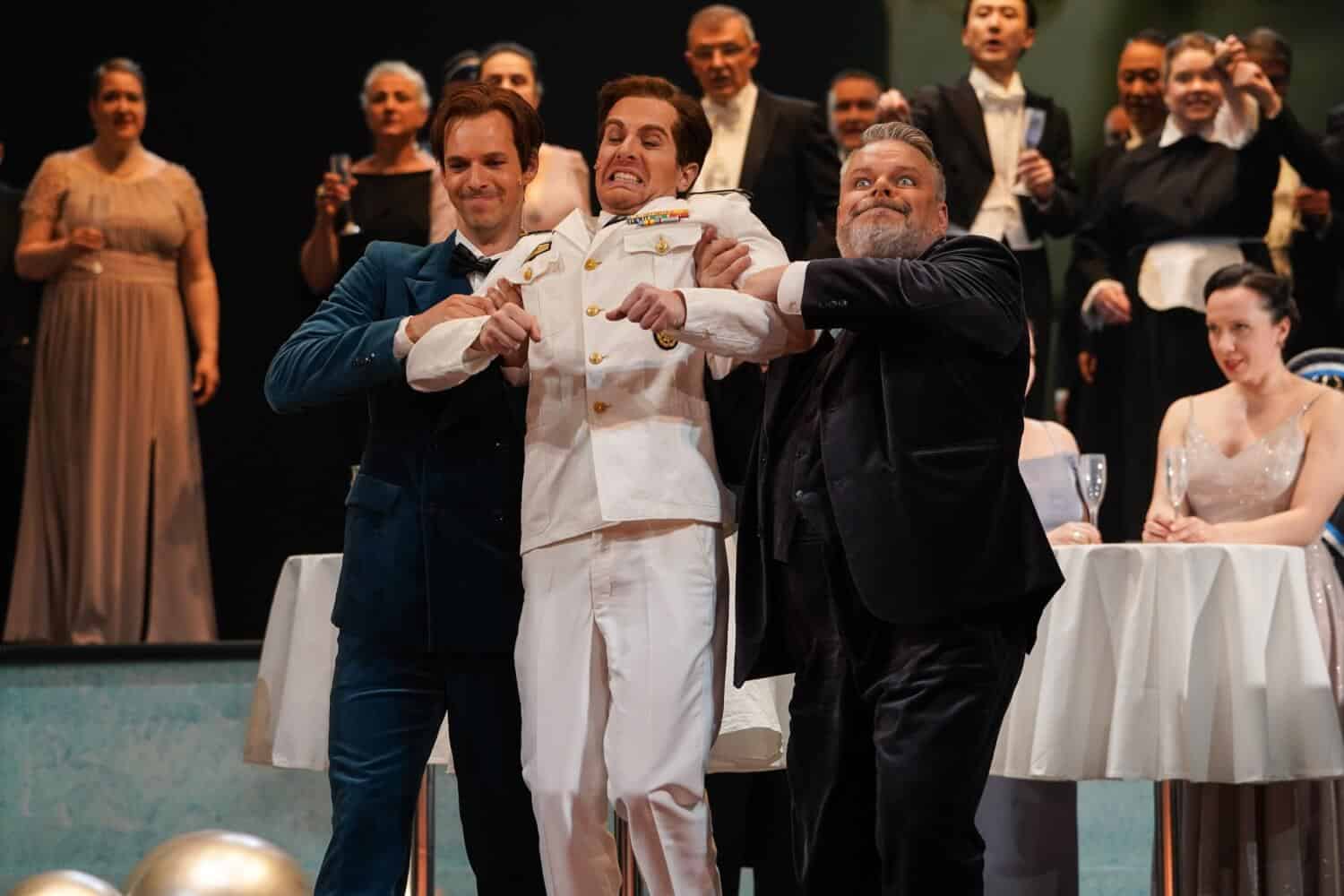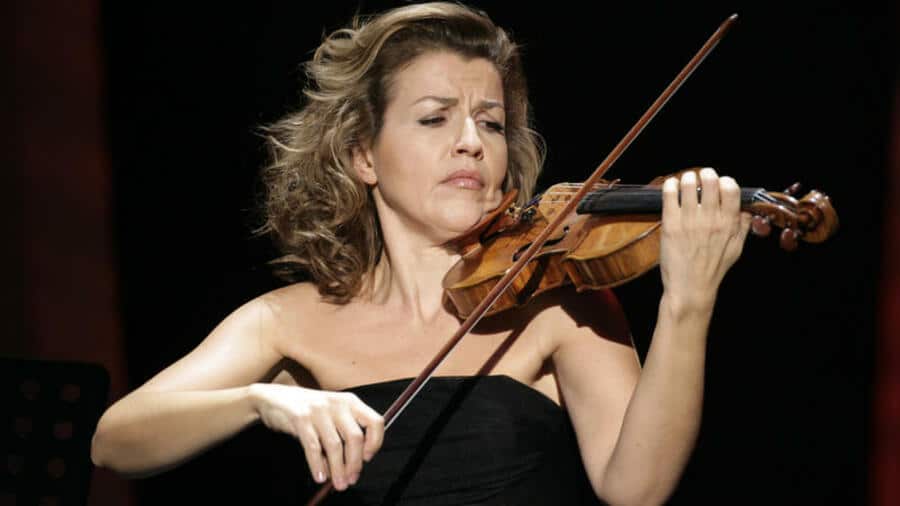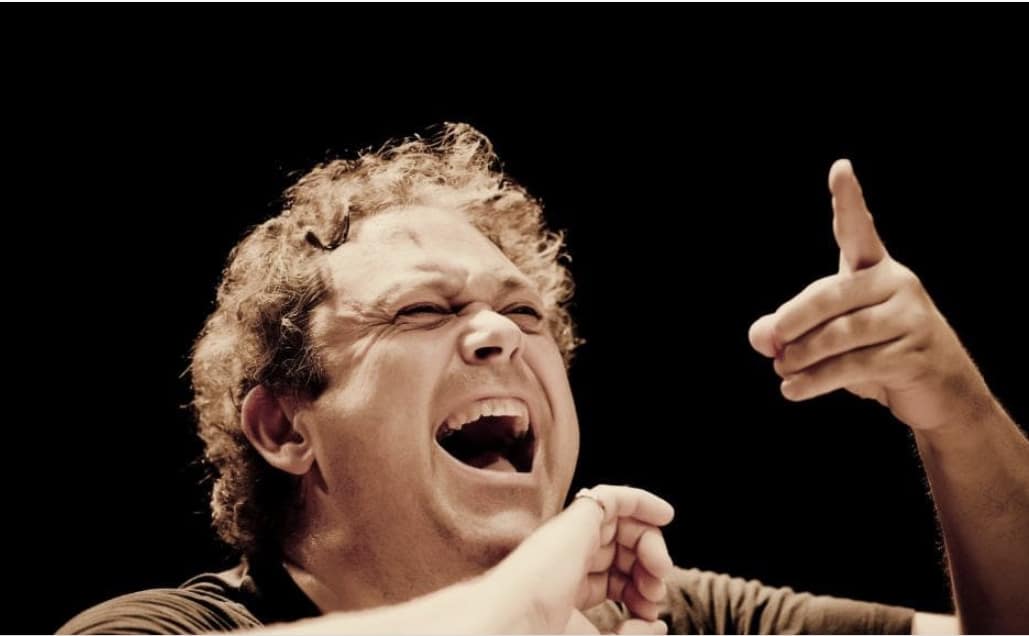Thomas Mann opera flops
OperaFor a novelist who was obsessed with Wagner, and with opera in general, it is a little surprising that only one of Thomas Mann’s works has made it onto the lyrical stage.
In Germany, though, they keep trying.
In Mann’s hometown Kiel they just premiered an opera on his debut masterpiece, Buddenbrooks.
‘A shipwreck’ was one of the kinder critical verdicts.
Photo: Olaf Struck/Oper Kiel






Mann’s hometown is Lübeck…
In addition to pointing out that Thomas Mann’s hometown is in fact Lübeck, it might be relevant to at least mention the name of the composer, Ludger Vollmer.
Staging and libretto, based on Mann’s monumental novel might be problematic – however, Vollmer’s composition and especially singers, conductor, choir and orchestra receive high praise in several other reviews:
https://deropernfreund.de/theater-kiel/kiel-die-buddenbrooks-ludger-vollmer/
https://www.kn-online.de/kultur/regional/buddenbrooks-wie-ludger-vollmers-neueste-oper-in-kiel-gezuendet-hat-XPPBW2XXLNGGRPKOG6EQUKBWTA.html
https://www.concerti.de/oper/opern-kritiken/theater-kiel-buddenbrooks-4-5-2024/
Read likes it is an opera written by Mann or on Mann’s libretto….
Kiel has to be the ugliest opera house of all. If you don’t believe me, step in sometime to take a look. Hard to understand because they are the seat of the prestigious Schleswig-Holstein Music Festival. They should do something about it.
I’m fairly sure Death In Venice ‘made it on to the lyric stage’…
There have been many operas based on Mann’s story “Mario and the Magician”.
Yes David, David Rampy here and I did Harry Somers Mario directed by Bob Carsen with Canadian Opera. Fantastic and interesting production
I assume Death in Venice was the one he was referring to.
It seems a rather bad idea to process Buddenbrooks, the very long and complex family history, into a one-night opera, and the critic appears to have read the original so the production must have come across as a caricature.
But any story is saved if the music carries the thing along. Vollmer (the composer) uses quotations and style references, which does not seem to be an effective way to compensate for the patchwork of the plot:
https://www.youtube.com/watch?v=tPyvwUEOM-o
https://www.youtube.com/watch?v=KKqLpsM-O6M
https://www.youtube.com/watch?v=OjOfmjm0zFo
https://www.youtube.com/watch?v=rpNNGjDhbU0
Nonetheless, the production as such seems to have been successful, in spite of the critic’s complaints, so a critic who had no idea who Mann was let alone his writings, may have had a better time.
Using existing literature for an opera plot is always very tricky, because a libretto’s requirements are so different from a novel or a play. A novel needs to be drastically reduced which means all kinds of subtleties and substories disappear, and still lots of background information must somehow be included which may drag the narrative; a play may be easier but also there, tempo and text mass are so different. Entirely successful reworkings of plays for opera libretti are Verdi’s Otello, Debussy’s Pelléas and Strauss’ Salome. And even in the last two, where the original has been followed very closely, much text has been deleted.
The text of Othello is much longer than that of Otello as well.
Is Strauss’ Salome a re-working of Wilde’s text? I always thought he had set to music the German translation of the French text with some cuts…
As per Wikipedia:
The libretto is Hedwig Lachmann’s German translation of the 1891 French play “Salomé” by Oscar Wilde, edited by the composer. Strauss pared down Lachmann’s German text to what he saw as its essentials, and in the process reduced it by nearly half, which included removing some of Wilde’s recurring motifs.
If you compare the original with the libretto, you find that what has been cut are the repetitions or exaggerations of what already has been said. WIlde’s text is overblown with hyperboles and forced symbolism. The libretto is very effective, I think, as the music is, and the tempo of the whole.
Thank goodness for the comment section, which provided a far more substantive and informed discussion than did the brief and inaccurate article.
It seems that these days any old story can be the subject of an opera and any old composer is always waiting to do the job.
Compared with writing, say, a string quartet, a piano sonata or a symphony, the writing of an opera is a huge gamble. The composer has to invest a massive amount of time writing it (except for a Mozart, Rossini or Offenbach), and the impresario has to invest a fortune in hiring the venue, staging the work and paying the soloists, orchestra and chorus. This is a recipe for catastrophic financial loss if it fails but enormous profits if it is a success, with lengthy runs in the world’s greatest opera houses.
This one seems to have been the latest interment in the colossal graveyard of failed operas. Here are some more waiting in the wings, ready to provide lucrative work for the gravediggers:
“OJ”
“Dr Jab-Kill from Hyde” – the story of Harold Shipman
“Transient Truss”
“A Brief History of Time”
“The Merry Wives of Boris”
“Waiting for Godot”
“A la recherche du temps perdu” – in its entirety
“The life and loves of Anton Bruckner”
Any more suggestions???
Surely a complete ‘A la recherche du temps perdu’ is somewhere in a drawer of the Sorabji’s estate.
I don’t know why Germany loves to mess around with opera! They’ve done Aida, where, at the end, instead of a tomb in a pyramid, Aida and Radames are in a spaceship that shoots them to earth! Modern stuff just seems to be garbage!
It’s the didactic nature of the culture: ‘This is good for you’. Hence the development, after WW II, of Regietheater, a German invention which consequentoy spread all over the operatic world, which is: a production defined by the concept of the director: his personal idea of bringing the story closer to contemporary experience. This patronizing attitude implies that audiences are too stupid to feel any emotional resonance with Figaro’s plight, Aida’s love life, Wotan’s misfiring meanderings, Mélisande’s treacherous hairdo. Therefore Regietheaterproductions include ships, cars, fridges, cellphones, modern suits, etc. etc. to offer a grip to the audience’s attempts to follow the plot. It’s all based on a hughe misunderstanding.
The review says that the audience loved it. So perhaps it didn’t ‘flop’ entirely.
Photo looks like Pinkerton getting his comeuppance……..
“Der Zauberberg” awaits.
Sad, but I can step outside my home in Los Angeles and ask a passersby if they know who Thomas Mann is/was, and get a shrug and don’t know/care. And Mann and family use to live here! It’s probably the same in New York, Chicago, Miami, maybe London and Paris? Maybe a Taylor Swift opera would get good reviews and fill seats?
How many operas are so successful as to have several different productions? Given that ,why Norman are you so quick to throw pelters at the considerable efforts of composer and opera company who are doubtless sincere in their attempts?
Time will tell whether this opera, allegedly loved by the audience, will have a long run and reach the stages of the greatest opera houses: La Scala, the Met, Covent Garden and the Vienna Opera. It may then enjoy many revivals and all its melodies might be whistled by numerous postpersons (or postrobots or postdrones) as they skip up the drive to deliver the latest junk mail to front doors all over the world.
When all that happens, I am confident that NL will post this on SD and mention his surprise that his original verdict was undeserved. Until then, I think he is spot on.
Peggy Glanville-Hicks wrote a 1954 opera based on Mann’s novella THE TRANSPOSED HEADS. It was done on Broadway in 1958 with a cast including Loren Driscoll, Peter Binder, Rita Metzger and Peggy Wood, with Carlos Surinach conducting.